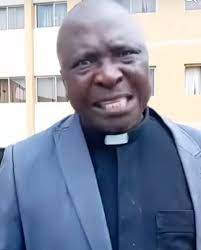
Reported by: Ijeoma G | Edited by: Henry Owen
A growing wave of concern has trailed the deletion of the social media accounts of prominent Christian leader, Rev. Ezekiel Dachomo, after the Nigerian government reportedly flagged his online posts as a threat to national security.
According to information shared online, Rev. Ezekiel received a notification warning that his content “jeopardised national security” shortly before all his platforms, including Facebook, were taken down. His supporters describe him as a vocal advocate against insecurity, poverty, and religious violence, insisting his posts were not dangerous but merely critical of government failures.
The development has sparked accusations of selective censorship, with critics alleging that the government is suppressing Christian voices while allowing figures such as Sheikh Ahmad Gumi—widely criticised for his controversial engagements with bandit groups—to continue operating freely on social media. The incident has been cited by activists as further evidence of what they call systemic pressure on Christian communities.
The uproar has drawn the attention of local and international observers, including human rights advocates and foreign political figures tagged in the online outcry. Many are now calling for transparency and fairness in how the government handles digital content, especially in a country where social media remains a crucial tool for advocacy, exposure of abuses, and community mobilisation.
The real issue, observers note, is the deepening mistrust between citizens and the state over how security laws are being applied. At a time when Nigeria continues to battle widespread attacks, banditry, and terrorism, concerns are rising that measures intended to protect national security are instead being used to silence critical voices.
📩 Stone Reporters News | 🌍 stonereportersnews.com
✉️ info@stonereportersnews.com | 📘 Facebook: Stone Reporters | 🐦 X (Twitter): @StoneReportNew | 📸 Instagram: @stonereportersnews


Add comment
Comments